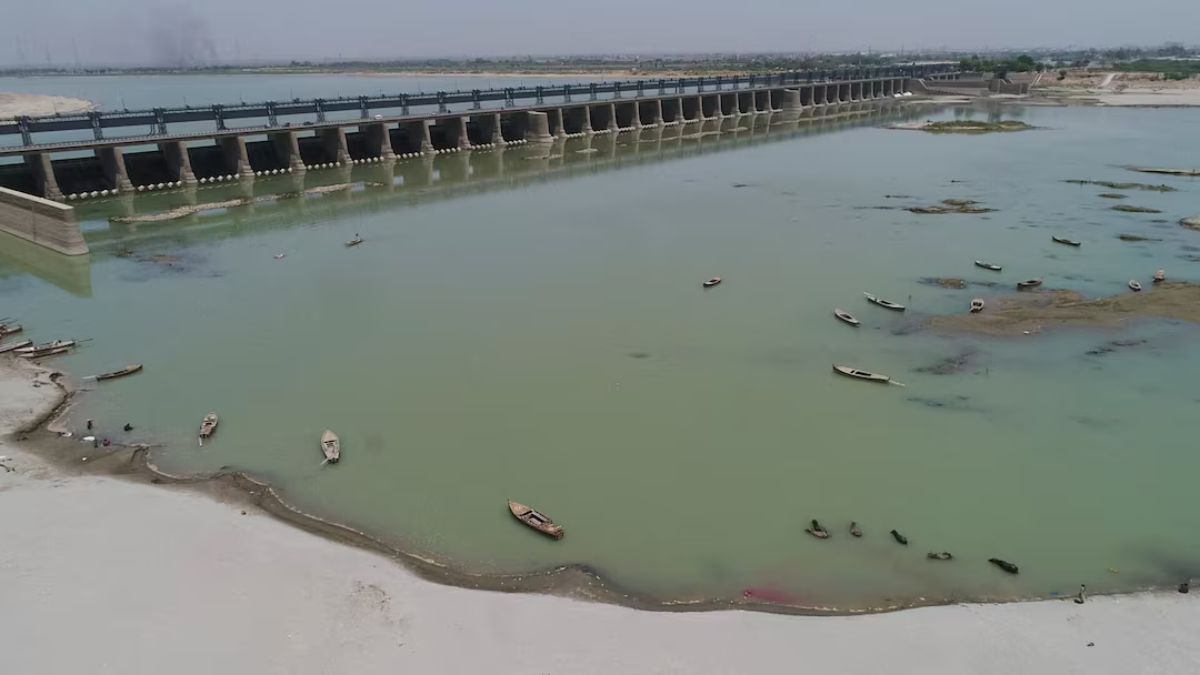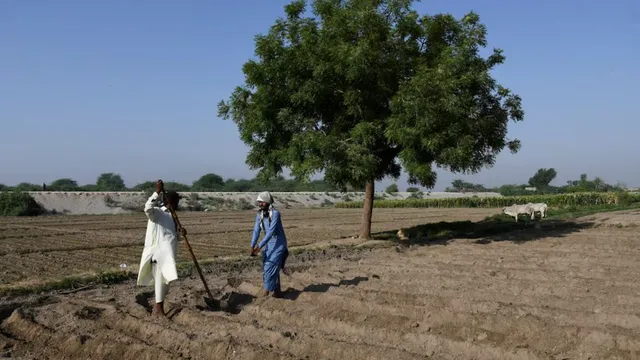- By Supratik Das
- Sun, 27 Apr 2025 04:16 PM (IST)
- Source:JND
In a huge escalation after the fatal terrorist attack in Kashmir, India suspended the historic Indus Waters Treaty with Pakistan, alarming fears of a pending agricultural and economic crisis over Pakistan's agrarian areas. The 1960 World Bank-brokered treaty regulates water-sharing between the two nuclear-armed neighbors and guarantees Pakistan access to 80 per cent of the Indus River system waters. India's suspension comes after terrorist behind the recent Kashmir attack were accused of being of Pakistani origin.
Pakistani Farmers Fear Turning Lands Into Desert
For Pakistani farmers like Homla Thakhur, who cultivates a modest 5-acre vegetable farm near the Indus River in Sindh’s Latifabad region, the future looks bleak.“If they stop water, all of this will turn into the Thar Desert, the whole country,” Thakhur, 40, told Reuters while spraying pesticides under a searing sun. “We’ll die of hunger,” he added. Farmers throughout Sindh and Punjab, depending mostly on the Indus and its tributaries for water for irrigation, have shown utmost concern as water levels in the river keep plummeting. The experts have been warning that with no immediate fixes, millions of livelihoods could be erased.
India To Withhold Hydrological Information
As per senior Indian government officials, New Delhi intends to gradually divert water for its own consumption by developing canal networks and building new hydroelectric projects, although such facilities might take seven years to finish. Immediately, India has decided to halt the sharing of crucial hydrological data, flood warnings, and annual meetings under the Permanent Indus Commission that will severely hamper Pakistan’s ability to manage its water resources. “Without the information, they cannot plan,” said Kushvinder Vohra, a former head of India’s Central Water Commission and ex-Indus Commissioner.
Water Shortage To Affect Pakistan's Economy, Energy
The crisis jeopardizes not only Pakistan's agricultural production but also power generation and city water supplies. Economist Vaqar Ahmed of Oxford Policy Management stated, "India hasn't got the infrastructure yet to completely stop waterflows, particularly during floods, so Pakistan must urgently address inefficiencies in its water sector." Water leakage and mismanagement have been a long standing problems in Pakistan's irrigation system, he added.
Indus Waters Treaty Had Withstood Wars, Now Faces Uncertainty
The Indus Waters Treaty had endured four wars between India and Pakistan since 1947, representing unusual cooperation among the adversaries. Still, experts and politicians today caution that the suspension may create a dangerous precedent. “We’re already locked into generations of conflict, and by exiting the Indus Water Treaty, I believe we’re locking future generations into a brand-new context of conflict,” said Bilawal Bhutto Zardari, Pakistan’s former foreign minister.
A drone view shows the Kotri Barrage on the Indus River in Jamshoro, Pakistan. | Credit: Reuters
While so, India has claimed that the treaty does not anymore represent the reality of the region, referring to increasing populations and the demand for clean hydropower. A World Bank official explained that the institution is a "signatory to the treaty for a limited set of defined tasks" and would not be commenting on sovereign choices taken by member states.
No Substitute for Indus Water Yet
Agricultural specialists emphasize that Pakistan has no short-term alternative to the treaty-governed rivers. "The rivers feed not only crops but cities, industries, and millions of human beings," commented Pakistan Agriculture Research's Ghasharib Shaokat. “India’s actions inject uncertainty into a system that was never designed for unpredictability,” he added. With the Indus River supporting around 16 million hectares or 80 per cent of Pakistan's agricultural land so the next few months are critical for farmers, cities, and the economy as well.

